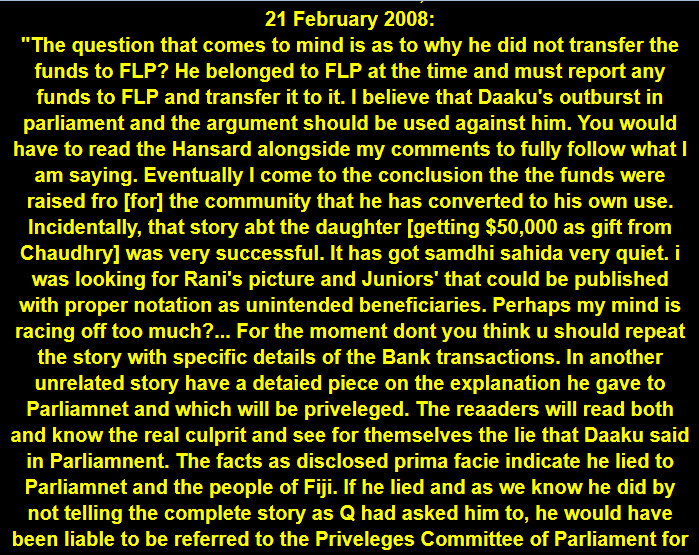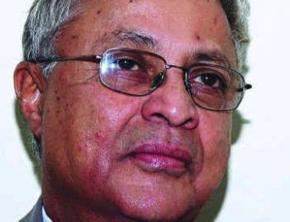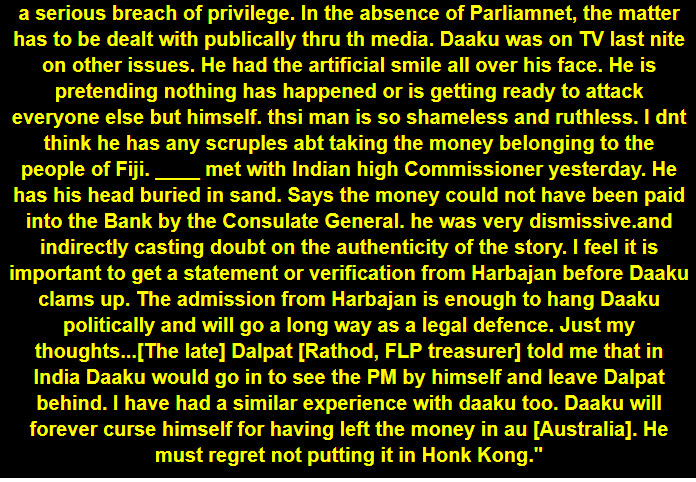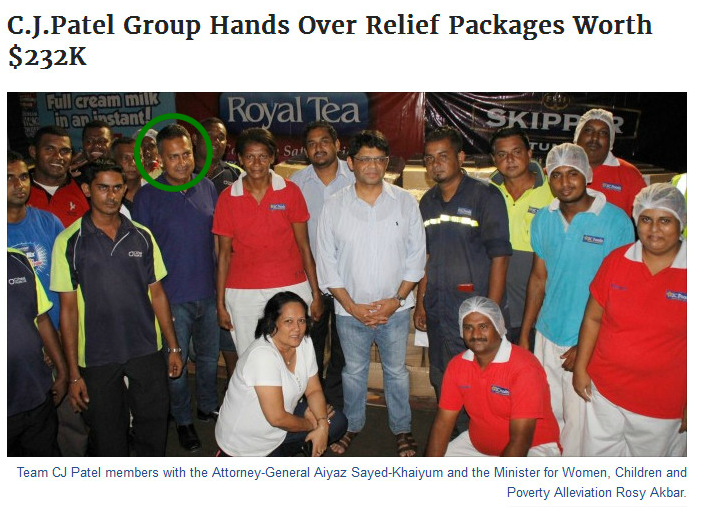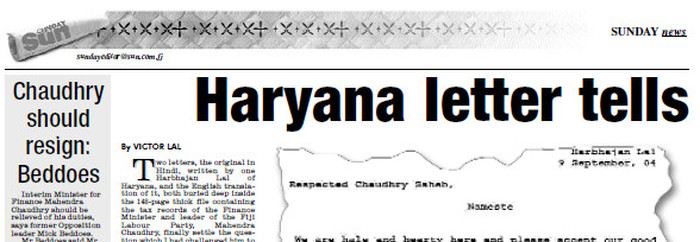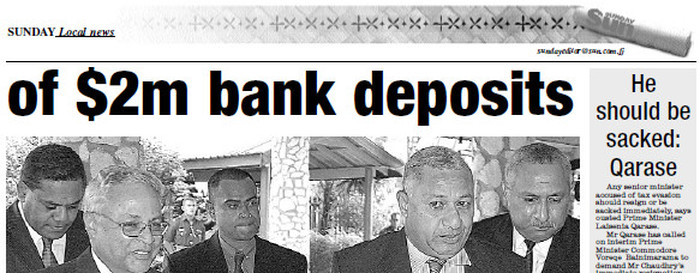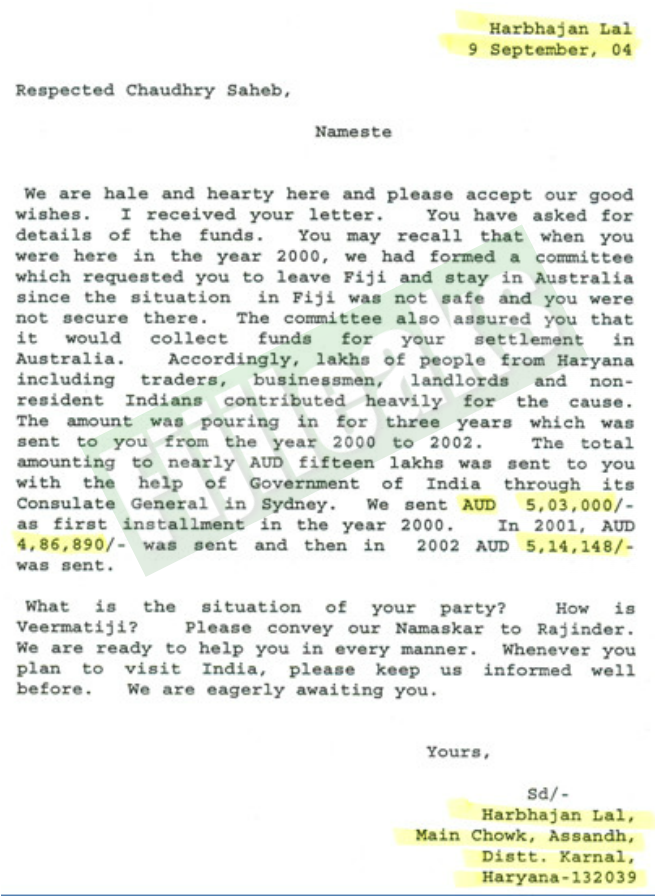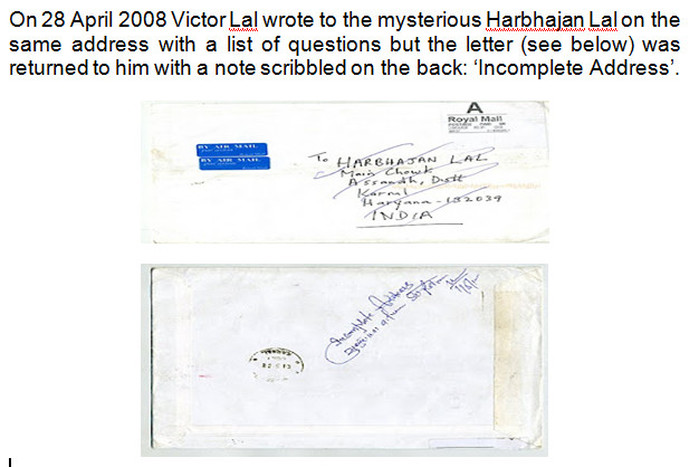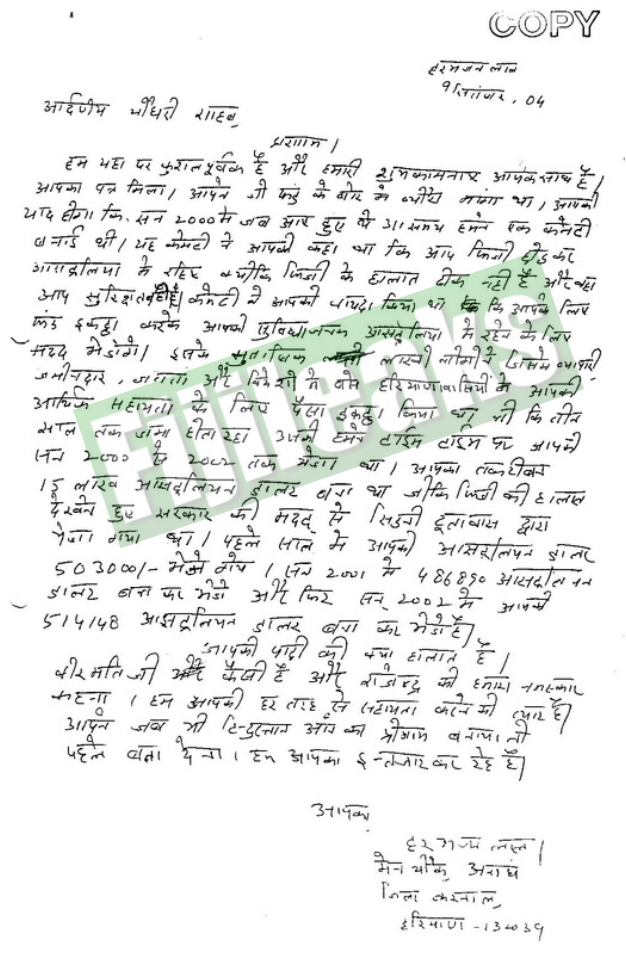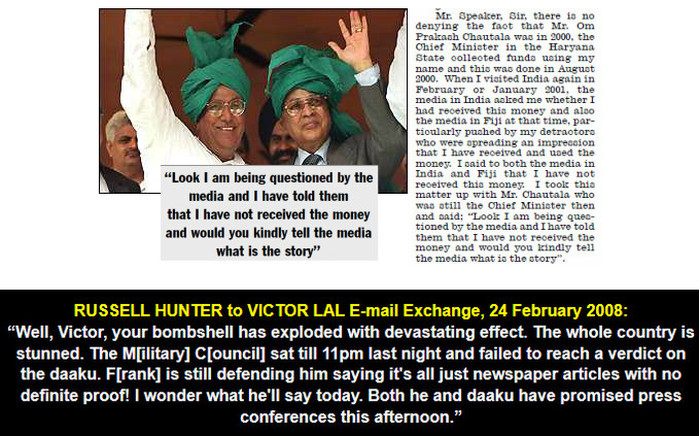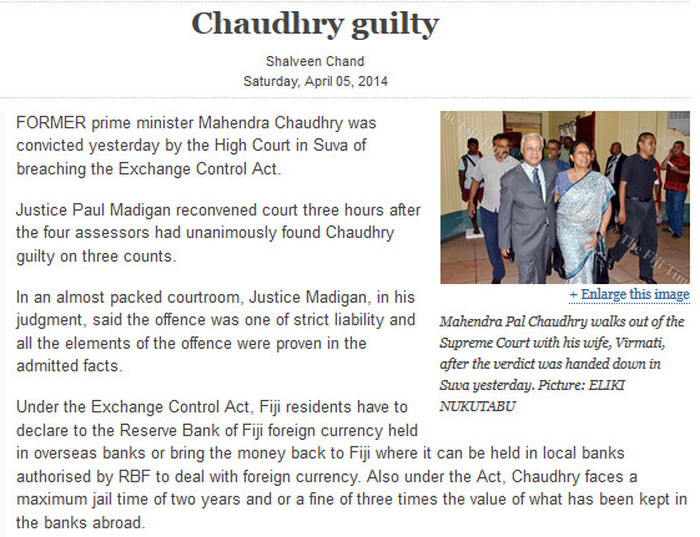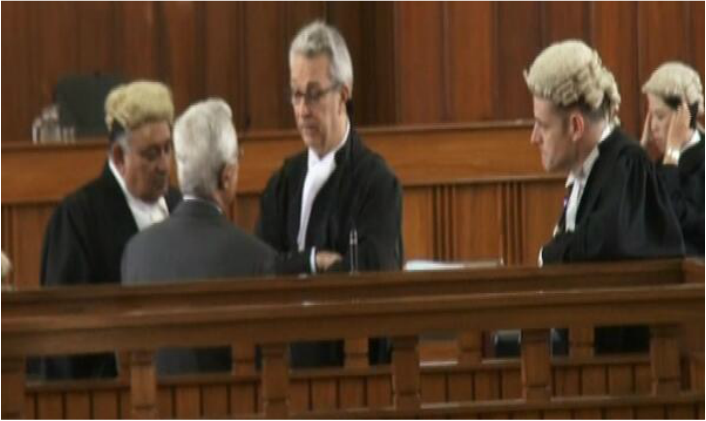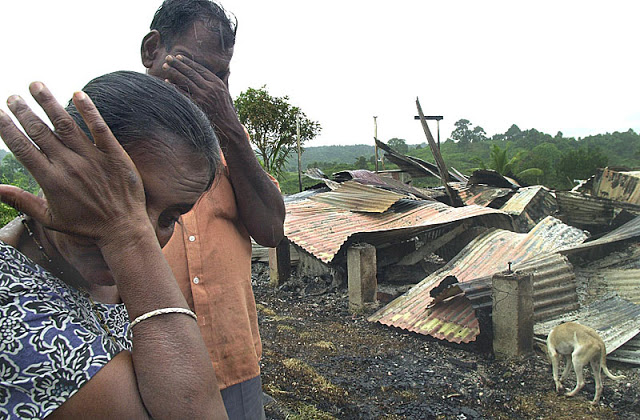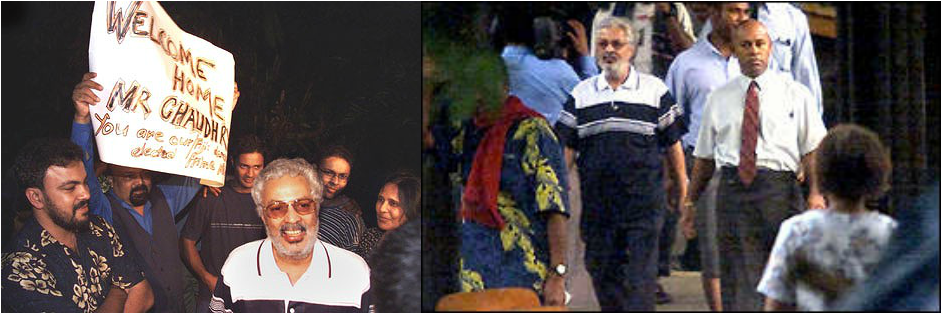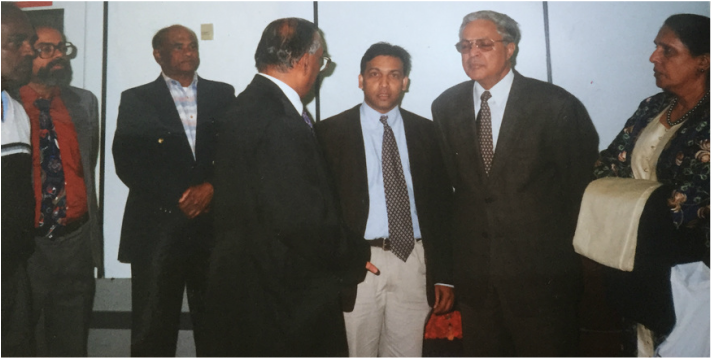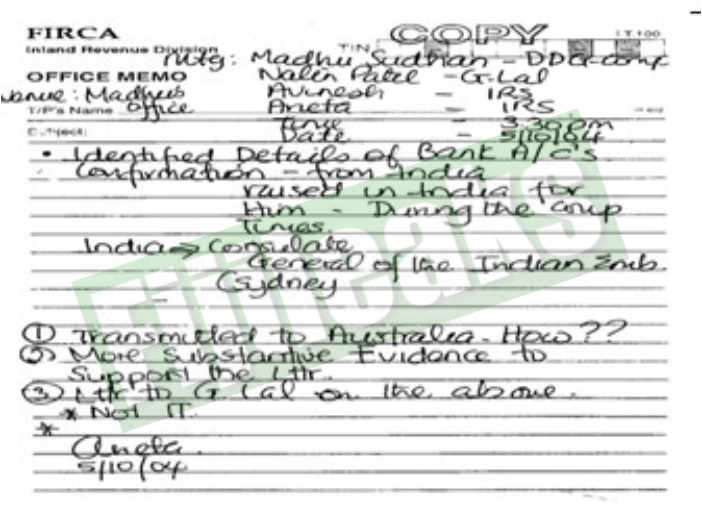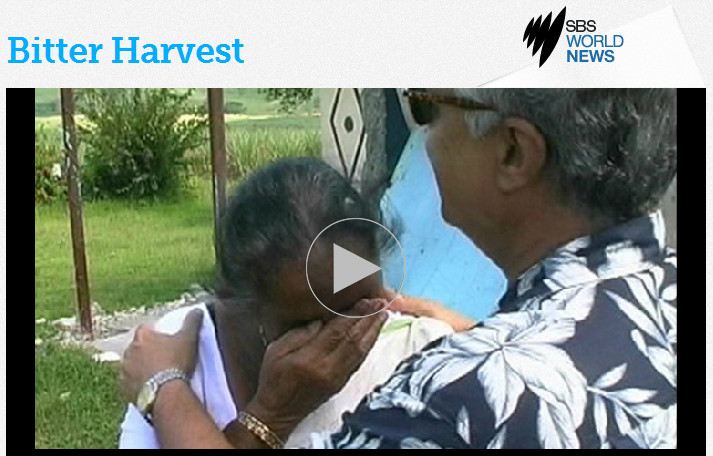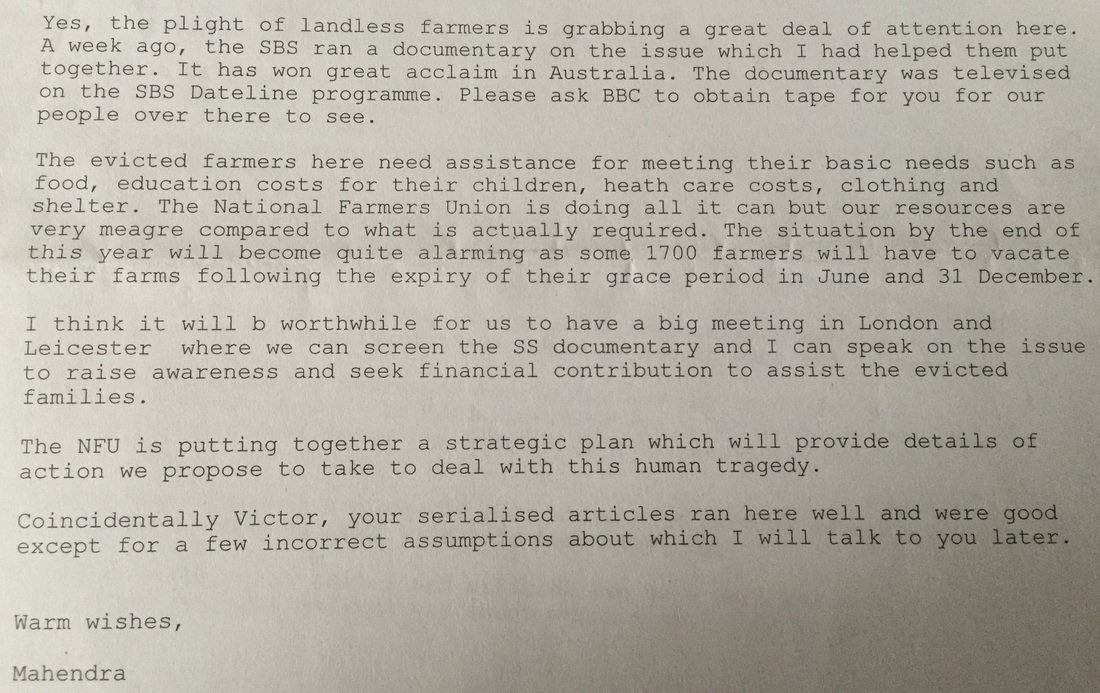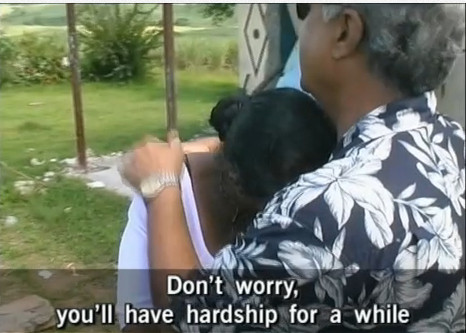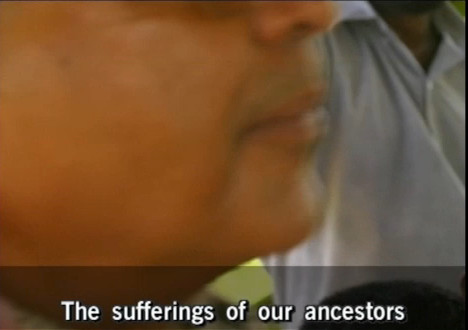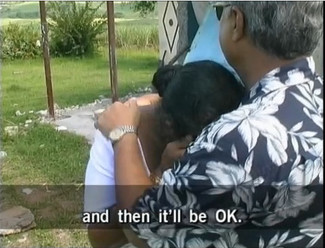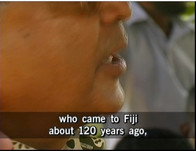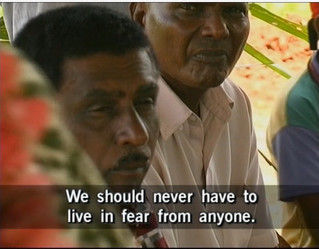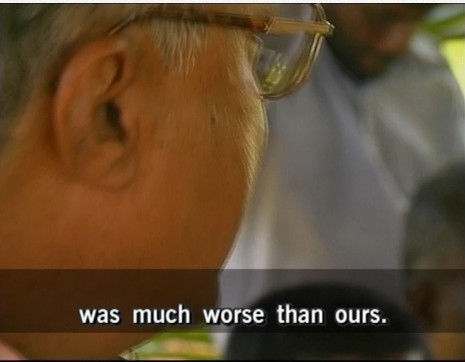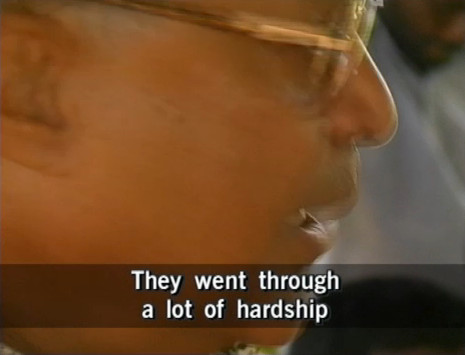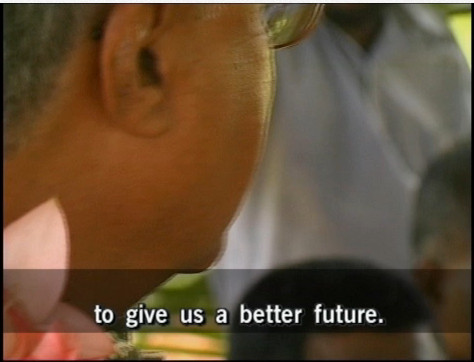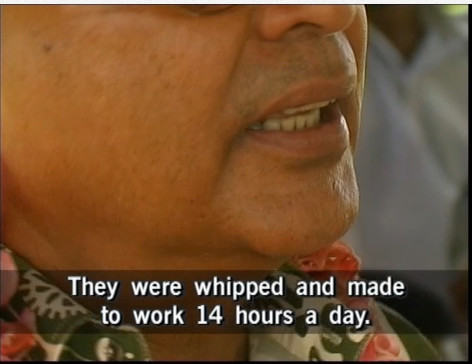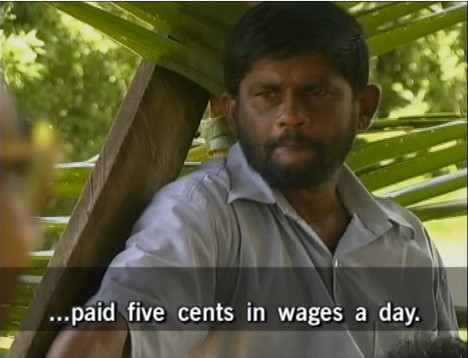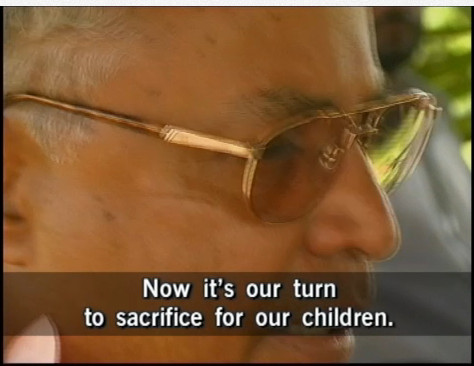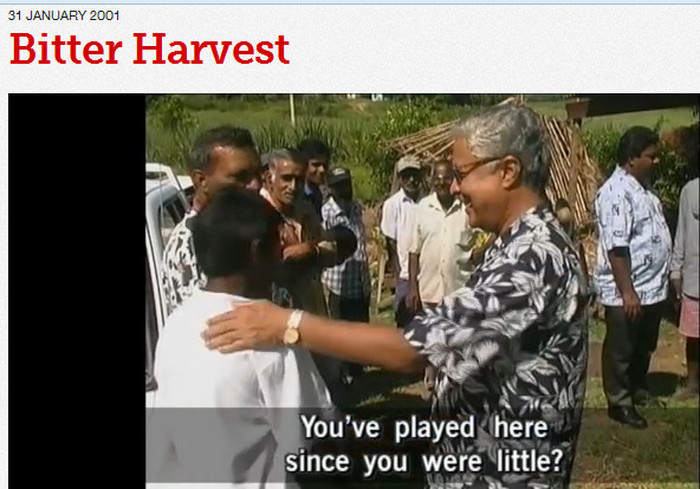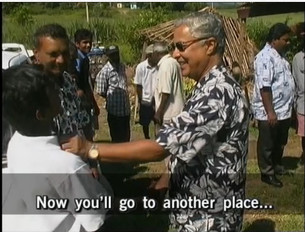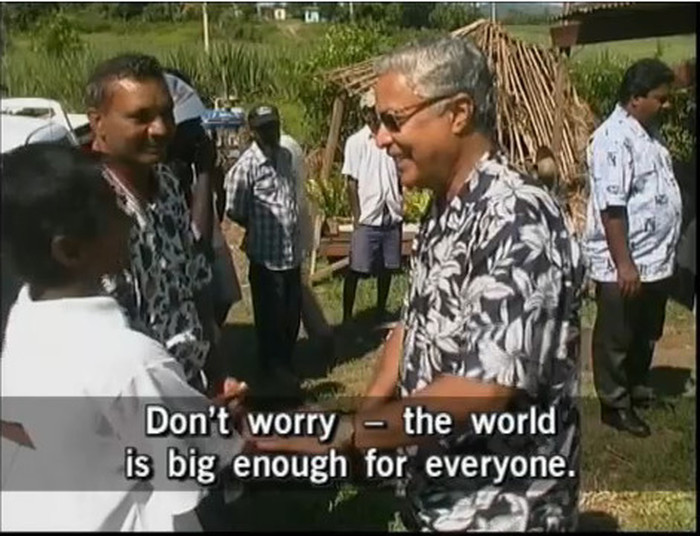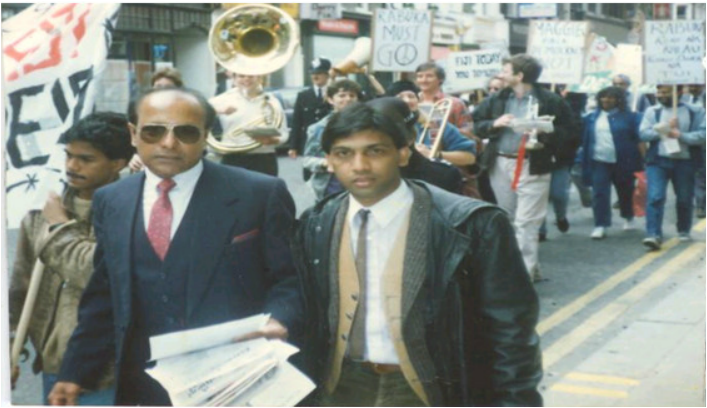Fijileaks: It is time Rani, Mahendra Chaudhry's daughter and Vishwa Sharma, his son-in-law, both of CJ Patel and Co Ltd, handed over the ill-gotten $50,000 they got from Chaudhry's $2million to charity to help the Winston victims
The first two to be exposed by Victor Lal were Mahendra Chaudhry's daughter Rani Sharma, HR manager at CJ Patel, and her husband Vishwa Sharma, the CEO of CJ Patel. The convicted "Daaku Mahen" had gifted his daughter (Rani) and his son-in-law Vishwa $50,000 from the $2million he was secretly hiding in his Australian bank account - money that was given to him to be passed onto the Indo-Fijian victims of George Speight's coup, especially the refugees hiding in the Girmit Centre!
Fijileaks: It is time Rani and Vishwa of CJ Patel and Co Ltd gave
the ill-gotten $50,000 to Winston charity
In early February 2008, Victor Lal had published in the Fiji Sun a series of articles relating to Mahendra Chaudhry's tax details but without naming him and provided no documentary evidence to support his claim when he published the following story, headlined: “Minister gave $A50,000 gift to daughter”; Victor Lal had evidence on him but had chosen to drag it out

Fiji Sun
February 2008
An Interim Cabinet Minister accused of systematic tax evasion made a personal gift of fifty thousand Australian dollars, equivalent to seventy thousand Fijian dollars, from his Australian bank account that he claimed was intended for his community in Fiji, to his daughter in 2002.
The details of the gift, supplied by the Australian tax and bank authorities to FIRCA, Fiji Inland Revenue and Customs Authority, are on the Minister’s tax files.
Last week I had revealed how the Minister, after claiming that the funds were held in trust for his people, had failed to provide evidence of a trust deed, and the bank accounts were in his name alone, not a trustee for any trust.
FIRCA, based on evidence supplied by the Australians, had confronted him as to why he did not disclose in his tax return the funds in Australia...
And now his tax file has been locked away in the deep bolts [sic vaults] of FIRCA. Any FIRCA officer who has the slightest innocent link with reviewing his file is sent home. The interim government, meanwhile, refuses to act against one of its own, accusing me and countless others of having a “political agenda” against the minister.
Mahendra Chaudhry's lawyer ANAND SINGH to VICTOR LAL in 2008:
Fijileaks: Vishwa Sharma (circled) should Hand Over the ill-gotten
$50,000 his father-in-law Chaudhry gave to him (Vishwa) and his wife Rani, both employed at CJ Patel and Co Ltd!
Mahendra Chaudhry to Victor Lal (a member of the London based Movement for Democracy in Fiji) after the failed George Speight coup: 'We should raise money in London and other cities in the United Kingdom', 2001; Chaudhry never told Victor Lal and others when they hosted him in London that he was hiding $2million in a secret bank account in Sydney, Australia, given to him by India:
Aiyaz Khaiyum and Frank Bainimarama (backed by military guns) tried to prevent Victor Lal from revealing that their Interim Finance Minister Mahendra Chaudhry was hiding $2million plus in Australian and New Zealand banks which was meant for Indo-Fijian victims of George Speight's 2000 failed coup.
BITTER HARVEST TO BITTER BETRAYAL: When he was making this SBS documentary in 2001 on evicted Indo-Fijian farmers he was already hiding from them over a million dollars in his Australian bank account
http://www.sbs.com.au/news/dateline/story/bitter-harvest
Wednesday, January 31, 2001 - 21:30
Channel:
SBS
The [George Speight] coup in Fiji may be over, but the persecution of ethnic Indians continues.
The lucky ones - the wealthy and educated - are leaving in droves.
But for others, the situation is becoming critical with the campaign to push them off their land threatening their very existence.
Mark Davis has their story.
In Fiji, the coup is over, the world`s media have departed, but the persecution of ethnic Indians continues. The lucky ones - the wealthy and the educated - are leaving Fiji in droves. But for Indian farmers, the situation is becoming critical. The campaign to push them off the land threatens their very existence. It is an exodus which has gone largely unreported, but it could seal the fate of Fiji's Indians once and for all.
REPORTER: MARK DAVIS
The Prasad family have lived in this valley for three generations. For Dhiren Prasad, it was a tough job to build this house.
REPORTER: Pretty solid?
DHIREN PRASAD: Yeah, pretty solid, because I was trying to fight with a hurricane. But I never thought about this. I never thought about this.
Built to last a lifetime, it`s an even tougher job to pull it down.
DHIREN PRASAD: It took me many days hard labour to build this, but... gone.
When Dhiren and his wife built their new home just a few years ago, they never dreamt that their land lease, held for more than 70 years, would not be renewed. They anticipated the cyclones that sweep through here every season, but not the political storms that have brewed in the past year.
REPORTER: So you got notice, what, one month ago to leave?
DHIREN PRASAD: Correct. 30 days notice.
Today is the last of those 30 days he`s had to salvage what he can from his life`s work. Tonight, he, his wife and his children will be sheltering in a shed at the local school. After that is unknown.
REPORTER: What`s your future?
DHIREN PRASAD: Myself, I have no place to go, and I just have to find anywhere to live, like that, or what do you call me? Nomadic. Go here and go over there like that.
In the house below, his mother sits as her mom is demolished around her. Yashoda refuses to leave the house her father built, the house that she was born in, the house her husband died in.
YASHODA PRASAD: Now there is nothing here - all our furniture has gone. There is nothing to sit down on. But I want to stay, even if it`s on the floor. I don`t want to leave this place.
Yashoda is hoping for a reprieve that will not come. Her children will take her away from this valley tomorrow. It will be dangerous for her and for them to try and stay just one more day.
YASHODA PRASAD: I thought that I would always live here. I never thought this would happen.
The Prasad family are not alone in their ordeal. Thousands of other Fijians of Indian descent are facing the same fate. A forced exodus from the land has begun which has gone virtually unreported - a story less dramatic, but for Indian Fijians, more devastating than last May`s coup.
FIJIAN INDIAN MAN: If our PM was forcefully removed from his seat so if you look at the bottom people here, we have got nothing here. Anything can come to us, see. So there is a fear inside them, see. So that fear is driving everybody out from here.
The nightmare for Fijian Indians began last May when an indigenous group launched a coup to oust the elected government of Mahendra Chaudhry. Chaudhry`s political crime was his race - an Indian Fijian. Chaudhry and his ministers were held in Parliament for nearly two months while the coup-makers outlined their plan for Fiji - a government reserved for the racially pure. It was the second such coup in 13 years to disenfranchise more than 40% of the population - some 330,000 Indians in a country of 800,000. While Chaudhry`s release and the prospect of legal proceedings offer hope for some, few doubt that the political rights of Indians in Fiji are in tatters at the very time they need them most. Across the islands, long-term rural leases are expiring and almost without exception, there is a blanket eviction of Indian farms under way - farmers who`ve turned to Chaudhry for help. While still officially PM, today Chaudhry is facing the juggernaut of indigenous nationalism armed with little more than a taxi fare and a mobile phone - a juggernaut which evicted him from power and is now sweeping through the countryside.
MAHENDRA CHAUDHRY, DEPOSED FIJIAN PRIME MINISTER: The fact is that this is the second time it has happened to the Indians here. The first was in 1987. They were made the scapegoat for the 1987 coup and again this year.
They are being stripped of their political rights, and of course, this coup is compounded by the fact that they - I`m talking about the farming community - are being stripped of their economic rights. So there is not much future when you look at it, that they`re being stripped of their political rights, economic rights and they`re being pushed into third-class citizenry in this country. So these are the thoughts that go through my mind when I see them.
Amidst all of his recent crises, this is probably the hardest week of Chaudhry`s career - travelling through the cane belt to be with families on their last days on the land, the elected leader of his country, powerless to offer anything but condolences.
MAHENDRA CHAUDHRY: The whole of this settlement here, some 300 families, will have to move out before December 31. Many have moved already - they`ve pulled down their homes, they`ve left. 330, actually. 330 families, so... what we are seeing is just an example of a pretty large picture. We`re just seeing a part of it. And this, of course, is right through from right throughout the cane belt.
Like most farmers in Fiji, these people have held long-term leases on land held by a trust board for indigenous Fijians - leases which are generally rolled over at the end of their term. Today is the first time that a mass eviction has ever occurred.
MAHENDRA CHAUDHRY: How many people are leaving without a place to go?
ELDERLY MAN: 15 people from that side and 15 from my gang, which is 30 already. Another 15 up there.
Even if Chaudhry was still in government, these leases would have expired, but the Landlord and Tenants Act, now effectively abandoned, would have softened the blow. Tenants had more rights to renegotiate a lease, there was more protection offered for the family home and a financial package for compensation and resettlement was in place. All that Chaudhry can offer now are some emergency food packages donated by the Farmers` Union. With a virulently anti-Indian administration in power, now there is no government assistance of any kind for these people - not even food or basic shelter. Politically, it would be unpopular to be seen to be helping Indians.
MAHENDRA CHAUDHRY: You`ve played here since you were little? Now you`ll go to another place. Don`t worry - the world is big enough for everyone.
But it would seem that Fiji is not big enough for the Fijian Indians. Many of these people can`t even rely on the charity of relatives to house them. They`re being evicted also, or they will be within the next year or two. Just a week ago, this man had a large house and a farm which supported his family. His future now is a shack in the corner of someone else`s cane field. It`s an illegal arrangement - no lease, no land to farm, but monthly rent to be paid and his life savings given for the privilege of putting a temporary roof over his family`s head. This man came to Fiji as a baby. He`s now 105 years old, still living on the land that his father cleared. In a few days, this last section of his home will be pulled down. But that`s his choice, according to the Native Land Trust Board, the authority that manages this land on behalf of its indigenous owners. They claim that he`ll be leaving his home of more than a century into a life of certain poverty purely of his own free will.
The island of Vanua Levu, prime cane country, prides itself on its reputation as the "Friendly North" - a reputation valiantly upheld at the headquarters of the Native Land Trust Board, the NLTB. Its director, Emosi Tonga, can`t understand the apparent lemming-like behaviour of Indian farmers.
REPORTER: You believe that they don`t have to go?
EMOSI TONGA, DIRECTOR, NATIVE LAND TRUST BOARD: No.
REPORTER: You believe that you would allow them to remain in the houses?
EMOSI TONGA: Yes.
REPORTER: Well, why is this not happening? It`s not happening anywhere. There is an absolute exodus.
EMOSI TONGA: No, there`s only some who are going and there`s others who remain.
REPORTER: People are remaining...some of the people are remaining on existing leases, but people are giving up their farms, but they`re losing their houses as well. Should this happen?
EMOSI TONGA: Well, that`s their choice. I have nothing to do with it.
REPORTER: Well, you`re the head of this...
EMOSI TONGA: I`m the head of this institution that looks after the native land, right? My first priority is the interests of the landowners. I`m not the government. That`s the government`s responsibility.
REPORTER: Well, you`re representing the landowners. Now, you`re saying that the Indian farmers don`t have to leave their houses, is that correct?
EMOSI TONGA: Yeah.
Emosi Tonga maintains that the NLTB has merely entered into discussions with farmers and that only 30 or 40 families are leaving the land on his island, but the valleys and roads around him tell a very different story. Even on a visual count of demolished house sites, it`s apparent that hundreds have left in this region alone. According to documents gathered by the National Farmers Union, the NLTB has issued eviction notices ousting families in December, and this is just a taste of what`s to come. This year, more than 1,600 leases will be expiring, affecting about 4,000 families, or 20,000 people, and next year will be almost double that. Local Fijian landowners are less ambiguous about what is occurring than their representative body the NLTB is. This man, an elder with a major land-owning clan in Vanua Levu, has no doubt that all expiring leases held by Indian farmers are being and should be revoked.
FIJIAN MAN: The village here, the village is staying on this land, the members of this village, about 1,000, more than 1,000, are staying here, staying on the 10-acres portion of lands. They are all staying together, working together, living together. And the Indian family, only one family occupy 30-40 acres of land. That is the difference.
This man is something of a rarity amongst Fijians. He`s a cane farmer as well as a landlord and he believes that the income that Fijian villagers receive from renting their land is simply not enough. He`s convinced that other Fijians will follow him into farming if given more opportunity.
FIJIAN MAN: The Indian people should please - we accommodate for 106 years already. Now give us a chance to accommodate our family.
To him, the Indians, despite being citizens for over a century, are a colonial relic who simply do not belong in the natural ethnic and religious mix of Fiji. It`s been a common theme heard over the past 12 months.
FIJIAN MAN: Because this is our responsibility - the Indian people is not our responsibility. It`s not a responsibility of us. That`s the responsibility of the government`s. Or the responsibility of the British and Australia. Not ours. We done our part - 106 years, we gave it to them.
But we have to look after our members, too. To educate them, to accommodate them, to housing them and whatever we can do. Surely, we will ask, what are you doing when the lease expires and you try to renew it again. This is one thing, as I quote in the bibles.
REPORTER: Well, as a Christian, what do you do for your brother who no longer has any income now? What happens to the Indians?
FIJIAN MAN: Indians - well, they didn`t believe God. Jesus, they never believed it. That`s what the Bible say. Don`t associate with those who didn`t believe with our gods.
FIJIAN INDIAN MAN: What can we do? Everything is lost, but we`re being brave. I`m not losing hope - I am very brave, but we have a problem getting food for the kids.
Few question the right of landowners to reclaim their land. But not even the wildest optimists imagine that all of these abandoned farms are going to be put into production. It seems to many that the evictions are occurring at such a speed that the primary intention is to evict Indians rather than to install Fijians onto the land.
FIJIAN INDIAN WOMAN: They should just pack us all up and throw us in the sea. Put us in a big boat and drop us in the ocean.
MAHENDRA CHAUDHRY: Don`t worry - you`ll have hardship for a while and then it`ll be OK.
Those being forced off the land today have few alternatives in an increasingly anti-Indian climate. Racially pure Fijians are now favoured in everything from gaining entry to the public service to getting scholarships for universities. A recent edict even barred Indian-Fijians from applying for taxi licences.
REPORTER: The way the Indians see it and the way I guess it does appear, that this is part of a broader anti-Indian campaign in Fiji.
EMOSI TONGA: Maybe, maybe not.
What is certain is that Indian farmers aren`t just facing legitimate actions to get them off the land. A wave of terror and intimidation continues against Indian farmers that began while Chaudhry was locked in Parliament.
At this refugee camp for evicted farmers in Vanua Levu, a familiar story emerges about what happened in the hinterland during the coup.
KHALID HUSSEIN, FIJIAN INDIAN FARMER: I took out my family for the safety of the family, my daughters and my wife.
On isolated farmlands, the coup triggered a wave of theft and plunder, with farmers savagely beaten trying to protect their families and their properties.
KHALID HUSSEIN: So when I went back, there were a group of people, they were trying to steal away my cattle. So when I went outside, these people came in again and they assaulted me. Brutally beaten. Here`s my hand, there`s a fracture - I had to have a surgical operation. My nose was broken. Skull was broken, badly beaten.
An entire community was left totally defenceless for almost two months.
KHALID HUSSEIN: But I have lost everything.
FIJIAN INDIAN WOMAN: The Fijian people want to rape, all these things. We don`t like it, the rape cases. It`s dangerous, because we`ve got small children here. The daughter is very small - if they`re going to do something to her, what will she feel in her heart? The Fijian people take the knife and chase my son. Then I got my daughter and ran into the sugar cane. Three days - three days we stayed in the bush.
They said, "Indians go back to India!" They said it just like that. How can we have the lease from a Fijian? We can`t go back in that place. They will beat us again. How will we stay there?
MAHENDRA CHAUDHRY: Of course, I wasn`t aware of what was happening, because we were locked up for eight weeks and we had no contact with the outside world. It was only when I was released that I had to reconcile myself with what I saw, and it was quite unbelievable. It was quite shocking, as far as I was concerned, and it didn`t stop.
The legacy of the coup is a continuing climate of violence and bravado in the bush. Just a week ago, this man was beaten unconscious when a Fijian landlord moved into his house, even before his lease had expired. Like many of his neighbours, he had endured a string of local thugs, all demanding goodwill payments that would apparently allow him to secure a new lease from the NLTB and to save his home - a huge payment with no guarantee of a lease being issued.
KHALID HUSSEIN: So I went to all the departments to ask if they could assist me. No-one could assist, no-one had assisted so far.
Khalid Hussein was one of the most successful farmers in his region. He still had six years to run on his lease, but he was driven from his farm when he refused to make goodwill payments to local landowners in excess of what he already pays to the NLTB.
KHALID HUSSEIN: The money that I have lost through my livestock is about 150,000. I`ve lost my house, two houses - about 60,000.
Khalid`s lease is legally binding, but it`s a moot point when his family`s life would be endangered if he tried to enforce it. But according to his landlord, the NLTB, all is well in the farming districts.
REPORTER: I mean, you presumably travel around this region. You know that these houses are being pulled down and these people are leaving. It hasn`t crossed your mind has to why they`re doing that?
EMOSI TONGA: As I`ve said, I think it`s misinformation. Maybe some problems - that`s probably why they`re doing it. An Indian wouldn`t believe me - an Indian would believe another Indian.
REPORTER: Well, have you considered that what they`re saying is true? Have you spoken to... when you see these areas that are being emptied out of the Indian population, have you spoken to the landowners about what`s going on?
EMOSI TONGA: Yes, I have spoken to a number of landowners - they haven`t done anything. I mean, they haven`t had anything to do with the Indians living there.
REPORTER: It`s a mystery for them as well? It`s a big mystery.
EMOSI TONGA: It`s a mystery to them too.
For these refugees, there`s not much mystery in it.
MAHENDRA CHAUDHRY: We should never have to live in fear from anyone. The sufferings of our ancestors, who came to Fiji about 120 years ago, was much worse than ours. They went through a lot of hardship to give us a better future. They were whipped and made to work 14 hours a day, paid 5 cents in wages a day. We have to think about the sacrifices they made to secure our future.
The journey of the Indians in Fiji has never been an easy one. Like migrants everywhere, they worked hard in the hope of a better life for their children, and they succeeded.
After the coup in 1987, the Indian community threw itself into reconciling with the indigenous Fijians. They rebuilt and broadened their political parties. For 10 years, they worked at negotiating and achieving a new constitution to satisfy all races in Fiji. Their future was back on track.
MAHENDRA CHAUDHRY: Now it`s our turn to sacrifice for our children.
But today, the talk amongst Indian Fijians is not about rebuilding or reforming Fiji - the talk is all about leaving it. It`s a move which Chaudhry doesn`t oppose, even though it will, of course, demolish the political base of his party and further weaken the position of those Indians who remain.
REPORTER: Are you planning an exodus from Fiji for the Indian population?
MAHENDRA CHAUDHRY: Well, after the first coup, thousands of them left. After this one, many have left. We don`t have exact statistics, but I think the exodus will continue. And indeed, it seems that`s the way that the Indians want it - that if they can go away to a more secure future elsewhere, they`d prefer to do that.
REPORTER: And what`s your feeling?
MAHENDRA CHAUDHRY: I think they`re entitled to that, and I think we have a duty to help them there, because what else can we give them here?
Although it`s what they want to hear, Chaudhry makes no direct mention of migration to this crowd. He knows that for most countries, cane farming is not high on the list of preferred skills.
Indians of wealth have already left Fiji. The professional classes are flooding out now, in high demand overseas as nurses, teachers, engineers. But there`s no nurses, teachers or engineers here, just people who`ve struggled to feed their children, and now they can`t even do that.
What remains of Dhiren Prasad`s home is loaded onto a truck - a few dollars worth of scrap which he hopes to shelter his family in somewhere. As Fiji lurches back to reclaim its past, it`s taking Indian Fijians back with it. For farmers like the Prasads, it`s not the future they`re heading to, but the same road they travelled a century ago - landless, penniless and worst of all, voiceless.



